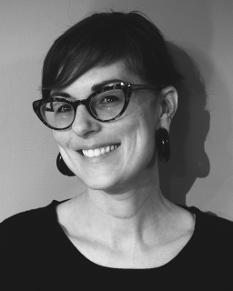The Mead’s red and white striped stack
puffs out sulfur-smelling smoke and steam
that ate clearcoat off cars not too far back,
but the EPA said sure it’s safe to breathe.
These puffs of sulfur-smelling smoke and steam
permeate the atmospheric zones,
but the EPA said sure they’re safe to breathe,
so most agencies leave the Mead alone.
Permeating atmospheric zones,
the smoke and steam will lead to climate change,
but most agencies leave the Mead alone
since they pay their workers a high-dollar wage.
Yes, the smoke and steam will lead to climate change
Yes, the Scioto may soon overtake its banks
Yet no protection is a high-dollar wage
when your living room becomes a sudden lake.
When the Scioto River overtakes its banks
and we are unable to breathe the air,
when our living rooms morph into sudden lakes,
we’ll realize that refuge is nowhere.
When we are unable to breathe the air
that ate clearcoat off cars not too far back,
we’ll realize that refuge is nowhere,
no beacon in that red and white striped stack.
The sea is ill-
equipped for man’s survival.
Shelter cannot be constructed by falling
beach umbrellas, foraged
berries, carrion & oyster
mushrooms to replace bluefish
or swordfish for the fortunate starved.
Maybe some seaweed like they ate in Japan,
before it was consumed. For warmth, only
driftwood left for fire & a tattered towel
to block whisked sand & fallout.
At times, it is easy to forget
the sea cannot even give water
pure enough to drink. In all its splendor
it cannot provide what a shallow creek contains.
In all its erasure, it forgets
to give life in return.

Jessica Cory teaches at Western Carolina University and is a PhD candidate specializing in Native American, African American, and environmental literature at the University of North Carolina, Greensboro. She is the editor of Mountains Piled upon Mountains: Appalachian Nature Writing in the Anthropocene (WVU Press, 2019) and the co-editor (with Laura Wright) of Appalachian Ecocriticism and the Paradox of Place (UGA Press, forthcoming 2023). Her creative and scholarly writings have been published in the North Carolina Literary Review, North Dakota Quarterly, Northern Appalachia Review, and other fine publications. Originally from southeastern Ohio, she currently lives in Sylva, North Carolina.
